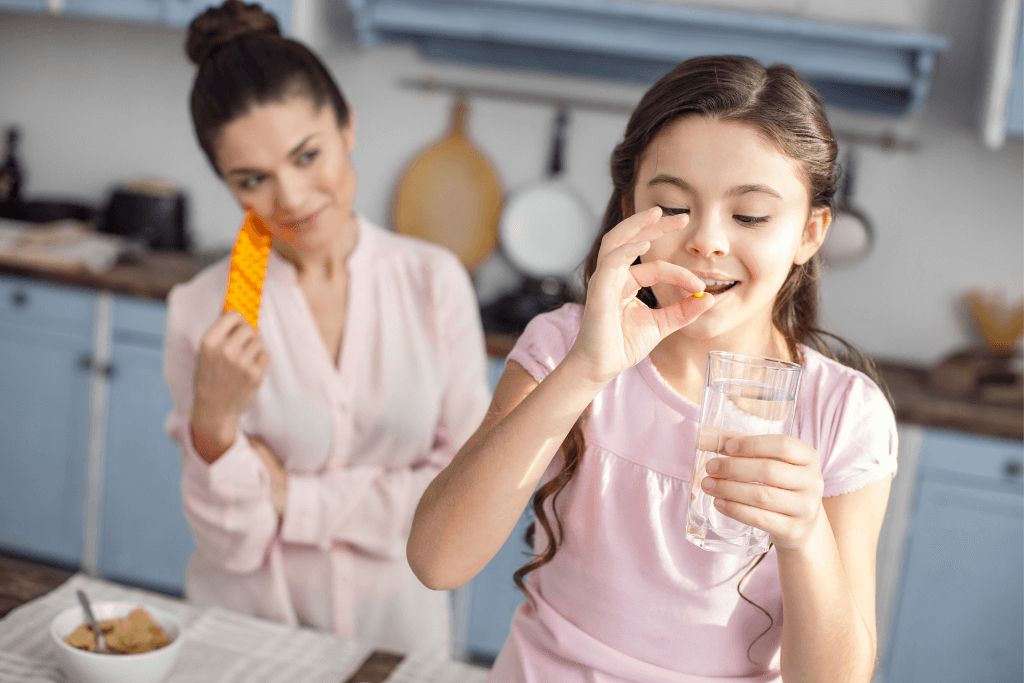Attention Deficit Hyperactivity Disorder (ADHD) is a condition that shows uniquely in each child but generally affects their ability to pay attention, control impulsive behaviors, and regulate brain activity levels. Those difficulties can impact a child at school, home, or socially.
It is a condition that typically begins in childhood but can persist into adulthood, but children may only be identified later in life. It often depends on a child's unique pattern of assets and deficits and typically how they do in school.
ADHD can affect cognitive and executive functions in several ways. Children with ADHD may struggle to do tasks that are not interesting to them or require prolonged attention, such as studying or listening to a lecture.
Furthermore, these kids need help organizing and prioritizing tasks. It means they need guidance starting and completing school projects or household chores. They may also need help remembering or retaining important information.
Children and teens with ADHD also have issues regulating emotions, which leads to impulsive behavior, outbursts, frustration, or disappointment. In the same way, they find it hard to control their impulses. It's why they interrupt others, blurt out inappropriate comments, and engage in risky behaviors.
Whether you are searching alone or getting support from our FREE FB community, parents are looking for natural cognitive enhancers and alternative solutions that support attention and brain health, which is good.
Magnesium as a Natural Cognitive Enhancer for ADHD
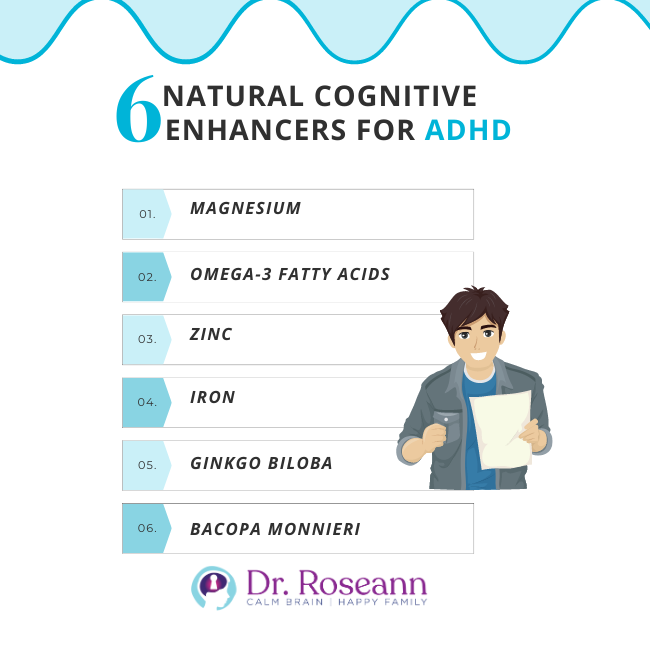
Although stimulant drugs and non-stimulant medications are commonly used to manage ADHD symptoms, they may not be appropriate for children as they may cause potential side effects. In such cases, natural solutions for ADHD present a more viable treatment option because they are scientifically proven to provide an alternative way to manage the condition. In addition, dietary supplements can help address your cognitive impairments and support brain function.
Let’s take the case of 8-year-old Claire. Claire was sharp as a whip but needed help to get everything on time. “I forgot” was always her answer when her parents wanted to know why her schoolwork was turned in late. Her parents tried almost every option they knew, including Adderall and Concerta, to no avail. It wasn’t until they added supplements, changed her diet, and used CALM PEMF™ in our BrainBehaviorReset™ Program that things turned around for her.
Neurotransmitters are created in the body with the help of magnesium. Magnesium is also needed for these neurotransmitters to communicate or work properly. It is essential in neurotransmitter synthesis, nerve transmission, and neuromuscular conduction.
ADHD children may have low magnesium and Vitamin D levels. They are also deficient in ferritin and zinc. However, a recent study found a significant decrease in conduct problems, social problems, anxiety, and shyness after eight weeks of Vitamin D and magnesium supplementation (Askari et al., 2020)
How Magnesium Helps with Attention Deficit
Hyperactivity Disorder
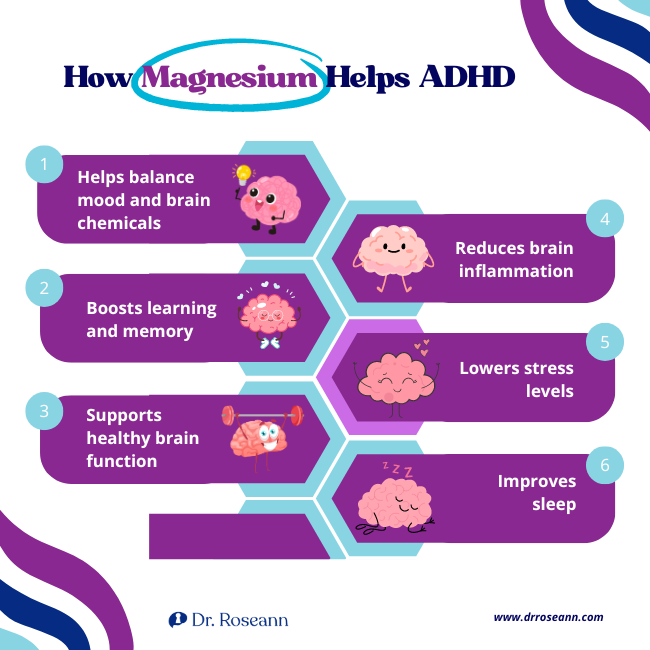
Magnesium is an essential mineral crucial in various physiological processes throughout the body, including brain function. While magnesium is not typically viewed as a direct cognitive enhancer like some other substances, it involves several mechanisms that can indirectly support cognitive health and function. Here are some ways in which magnesium may contribute to cognitive enhancement:
- Neurotransmitter Regulation: Magnesium plays a role in regulating neurotransmitter levels in the brain, including serotonin, dopamine, and gamma-aminobutyric acid (GABA), which are involved in mood regulation, stress response, and cognitive function.
- Synaptic Plasticity: Magnesium modulates synaptic plasticity, the ability of synapses to strengthen or weaken over time in response to activity, which is crucial for learning and memory formation.
- NMDA Receptor Function: Magnesium is a natural antagonist to the brain's N-methyl-D-aspartate (NMDA) receptors. Proper regulation of NMDA receptors is essential for synaptic plasticity, learning, and memory. Maintaining adequate magnesium levels ensures proper NMDA receptor function.
- Anti-inflammatory Effects: Chronic inflammation has been linked to cognitive decline and neurodegenerative diseases. Magnesium exhibits anti-inflammatory properties and may help reduce inflammation in the brain, thereby supporting cognitive health.
- Stress Reduction: Magnesium has been shown to modulate the hypothalamic-pituitary-adrenal (HPA) axis, which is involved in the body's stress response. By regulating stress hormone levels, magnesium may help mitigate the detrimental effects of chronic stress on cognitive function.
- Improved Sleep: Magnesium regulates the activity of neurotransmitter systems involved in sleep, such as GABA. Adequate magnesium levels have been associated with improved sleep quality, essential for cognitive function and memory consolidation.
While magnesium deficiency has been associated with cognitive impairment and neurological disorders, there is limited direct evidence to suggest that magnesium supplementation alone can significantly enhance cognitive performance in healthy individuals.
However, maintaining adequate magnesium levels through diet or supplementation as part of a comprehensive approach to overall health may indirectly support cognitive function and brain health.
It's worth noting that individual responses to magnesium supplementation may vary, and excessive magnesium intake can lead to adverse effects. Therefore, it's essential to consult with a healthcare professional before starting any new supplement regimen, especially if you have underlying health conditions or are taking medications.
A balanced diet that includes magnesium-rich foods such as leafy green vegetables, nuts, seeds, and whole grains is generally recommended for overall health and cognitive performance.
Other Natural Cognitive Enhancers for ADHD
Aside from nutritional supplements, there are other evidence-based natural treatment options for ADHD. The road is often long and hard when looking for help for your child with ADHD, so it is often surprising for parents to learn that there is so much they can do to help their child.
When combined with lifestyle changes, these natural solutions can make the symptoms of ADHD, such as cognitive deficits, short-term memory issues, and poor mental performance, more manageable. More importantly, these methods can address root causes.
1. Exercise
Regular physical exercise increases blood flow to the brain, improving focus and concentration. According to several studies, physical activity has shown promising results in treating mild to moderate depression and can be equally effective as medication. Moderate-to-intense aerobic exercise effectively reduced cognitive, behavioral, and physical symptoms associated with ADHD (Ng et al., 2017).
2. Meditation
Mindfulness meditation involves focusing on the present moment and observing your thoughts and feelings without judgment. It can help improve attention and reduce impulsivity and hyperactivity.
3. Healthy Diet
A healthy, balanced diet rich in nutrients can help support brain function and reduce ADHD symptoms. A nutrient-dense diet is the foundation of a healthy brain. As impossible as it seems to eat healthily, it can improve attention. In addition, research suggests a diet low in sugar and artificial additives is particularly beneficial.
4. Sleep
Adequate sleep is essential for overall health and can help reduce ADHD symptoms. Aim for 7-8 hours of sleep per night and establish a regular sleep routine. Children and teens with ADHD are mostly sleep-deprived individuals.
ADH kids experience more sleep problems related to bedtime schedules and restlessness. Parents of children with ADHD reported sleep deprivation more often than other parents (Hvolby et al., 2009).
5. Yoga
Yoga combines physical movement with mindfulness techniques, making it a potential way to improve focus, reduce stress, and manage ADHD symptoms. In addition, yoga is considered a complementary and alternative medicine with a favorable therapeutic effect on neuropsychological problems.
Clinical trials were conducted, and one study aimed to assess the attention level of female orphan children with ADHD who underwent an 8-week ADHD yoga module. Thirty-eight female children aged 6 to 10 participated in the study, with a single group pre-post test design.
The results showed significant improvement in attention levels, as assessed by parent and teacher scales. The study suggests that yoga may increase attention levels in children with ADHD (Indudhar et al., 2018).
6. Cognitive Behavioral Therapy
Cognitive Behavioral Therapy (CBT) is a psychological treatment of ADHD commonly known as talk therapy. It offers cognitive training interventions focusing on changing an individual's thinking patterns. How one thinks about a problem can be a significant obstacle to improvement, particularly when the brain is dysregulated.
7. Neurofeedback
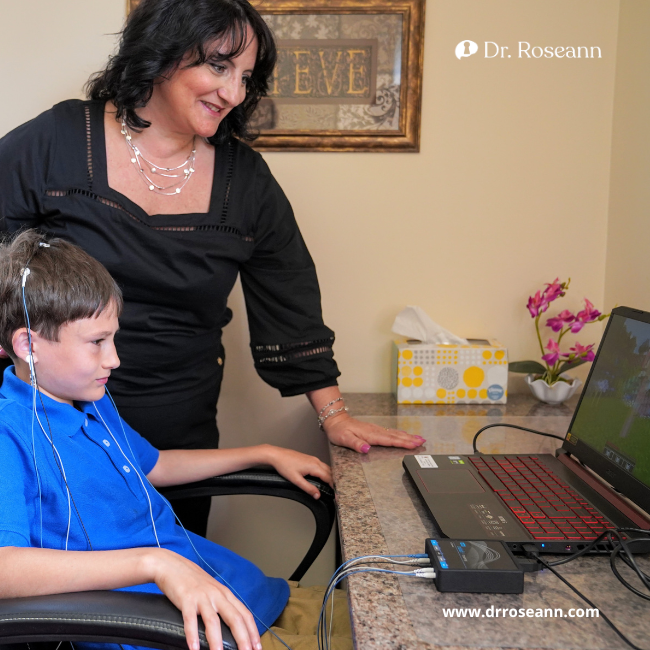
Neurofeedback therapy involves training children diagnosed with ADHD to boost certain brain waves that are linked to attention and focus, namely theta and beta waves. Positive feedback is given to the child's brain when they can generate these targeted brain waves. This feedback may take the form of playing a video game, a movie, or a sound.
There are decades of research to support the efficacy of neurofeedback in reducing ADHD symptoms. A separate study on clinical populations suggests that NIRS-based frontal lobe training might be an effective intervention for patients with ADHD, and further studies should focus on training specificity and optimization (Ehlis & Fallgather, 2016).
8. PEMF
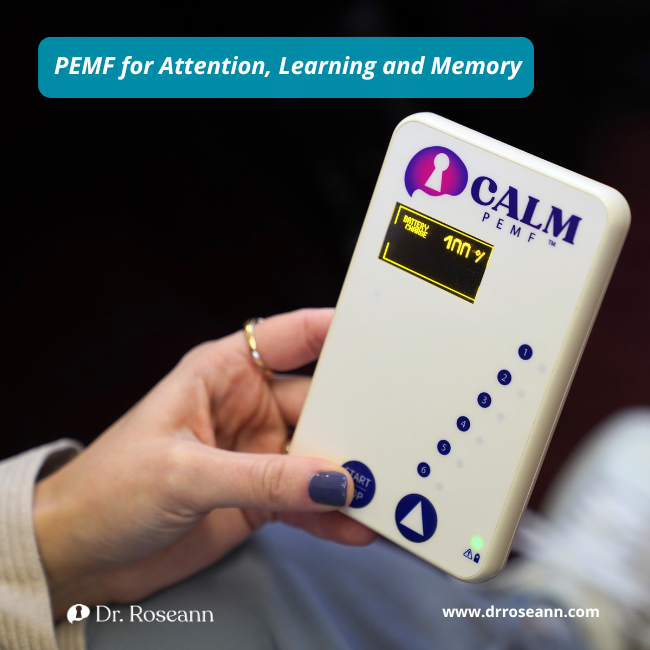
Pulsed Electromagnetic Field Therapy (PEMF) is a non-invasive electromagnetic field treatment that improves health and treats various medical conditions. PEMF therapy significantly improved symptoms such as hyperactivity, impulsivity, and inattention. It is also effective in reducing anxiety and depression in adults with ADHD. CALM PEMFTM is a mobile device you can take anywhere to help calm the mind and body.
Are you seeking a potent magnesium powder to support a calm brain and mental wellness? The Neurotastic Multi-Mag Brain™ Formula emphasizes the essence of brain health. It helps harness the power of the most bioavailable magnesium forms to improve attention, cognitive functions, and sleep, as well as curtail stress.
What's the difference between cognitive-enhancing drugs and natural cognitive enhancers?
Cognitive-enhancing drugs typically refer to pharmaceutical substances specifically designed to enhance cognitive function, such as prescription medications for ADHD or Alzheimer's disease. On the other hand, natural cognitive enhancers involve lifestyle changes, dietary adjustments, and practices like exercise and mindfulness that aim to improve cognitive function without pharmaceutical intervention.
What are smart drugs?
Smart drugs, also known as nootropics, are substances that are purported to enhance cognitive function, memory, creativity, or motivation in healthy individuals. These substances may include prescription medications like Modafinil or Adderall and over-the-counter supplements such as caffeine, L-theanine, or certain herbal extracts.
What are the side effects of ADHD medications on the human brain and mental health?
Side effects of ADHD medications on the brain and mental health can include insomnia, decreased appetite, mood swings, and, in rare cases, hallucinations or agitation. These medications primarily work by affecting neurotransmitter levels in the brain, which can lead to positive effects on attention and focus and potential adverse effects on mood and behavior.
What cognitive effects do ADHD patients report on their spatial working memory when using natural cognitive enhancers?
ADHD patients may report improved spatial working memory when using natural cognitive enhancers such as omega-3 fatty acids, caffeine, or herbal supplements. These enhancements lead to better spatial reasoning, organization, and problem-solving abilities.
How does magnesium improve cognition in healthy individuals?
Magnesium is involved in numerous biochemical processes in the brain, including neurotransmitter regulation and synaptic plasticity, which are essential for cognitive function. In healthy individuals, adequate magnesium levels support memory formation, learning, and overall cognitive performance. Magnesium's anti-inflammatory and stress-reducing properties may indirectly benefit cognition by promoting brain health and resilience.
Why is it inadvisable to treat ADHD with stimulant medications and prescription drugs in children?
It is not inadvisable to treat ADHD with a stimulant medication or prescription drug in a child as it may create a detrimental effect on their otherwise healthy developing brain.
How does the prefrontal cortex influence cognitive processes?
The prefrontal cortex plays a crucial role in various cognitive processes, including decision-making, planning, problem-solving, working memory, attention, and social behavior. It involves higher-order executive functions, such as inhibitory control, cognitive flexibility, and goal-directed behavior.
Will problems in the different brain regions affect how a person performs cognitive tasks?
Problems in brain regions such as the prefrontal cortex, hippocampus, and basal ganglia can impair cognitive task performance by affecting executive functions, memory formation, and motor control, respectively. Dysfunction in these regions can lead to difficulties in planning, learning, decision-making, and other cognitive processes essential for daily functioning.
Can the effects of prescription stimulants in improving cognitive outcomes outweigh their side effects?
The benefits of prescription stimulants in improving cognitive outcomes in kids may only outweigh their side effects if carefully monitored by a healthcare professional. It’s essential to consider factors like the severity of symptoms, overall health, and response to other treatments.
Citations
Askari, G., Hemamy, M., Heidari-Beni, M., Karahmadi, M., & Maracy, M. (2020). Vitamin D and magnesium supplementation help address behavior problems in children with attention-deficit hyperactivity disorder. International Journal of Preventive Medicine, 11(1), 4. https://doi.org/10.4103/ijpvm.ijpvm_546_17
Hvolby, A., Jørgensen, J., & Bilenberg, N. (2009). Parental rating of sleep in children with attention-deficit/hyperactivity disorder. European Child & Adolescent Psychiatry, 18(7), 429–438. https://doi.org/10.1007/s00787-009-0750-z
Indudhar, L., Murthy, S., BAMS, V., & Venkatram, R. (2018). Effect of Yoga on Attention Level of Orphan Girls with ADHD. International Journal of Advanced Research, 6(6), 316–322. https://doi.org/10.21474/ijar01/7216
Ng, Q. X., Ho, C. Y. X., Chan, H. W., Yong, B. Z. J., & Yeo, W.-S. (2017). Managing childhood and adolescent attention-deficit/hyperactivity disorder (ADHD) with exercise: A systematic review. Complementary Therapies in Medicine, 34, 123–128. https://doi.org/10.1016/j.ctim.2017.08.018
Dr. Roseann is a mental health expert in ADHD who is frequently in the media:
- Seeme & Liz 12 Essential Parenting Tips For Kids with ADHD
- Evan H. Hirsch, MD – EnergyMD with Dr. Roseann Capanna-Hodge (Video) Topic: Is it Brain Fog or ADHD?
- Helping Children Thrive Podcast Benefits of Neurofeedback for children with ADHD
Always remember… “Calm Brain, Happy Family™”
Disclaimer: This article is not intended to give health advice and it is recommended to consult with a physician before beginning any new wellness regime. *The effectiveness of diagnosis and treatment vary by patient and condition. Dr. Roseann Capanna-Hodge, LLC does not guarantee certain results.
Are you looking for SOLUTIONS for your struggling child or teen?
Dr. Roseann and her team are all about science-backed solutions, so you are in the right place!
Grab your complimentary copy of
147 Therapist-Endorsed Self-Regulation Strategies for Children: A Practical Guide for Parents
Dr. Roseann is a Children’s Mental Health Expert and Licensed Therapist who has been featured in/on hundreds of media outlets including The Mel Robbins Show, CBS, NBC, PIX11 NYC, Today, FORBES, CNN, The New York Times, The Washington Post, Business Insider, Women’s Day, Healthline, CNET, Parade Magazine and PARENTS. FORBES called her, “A thought leader in children’s mental health.”

She coined the terms, “Re-entry panic syndrome” and “eco-anxiety” and is a frequent contributor to media on mental health.
Dr. Roseann Capanna-Hodge has three decades of experience in working with children, teens and their families with attention-deficit hyperactivity disorder (ADHD), autism, concussion, dyslexia and learning disability, anxiety, Obsessive Compulsive Disorder (OCD), depression and mood disorder, Lyme Disease, and PANS/PANDAS using science-backed natural mental health solutions such as supplements, magnesium, nutrition, QEEG Brain maps, neurofeedback, PEMF, psychotherapy and other non-medication approaches.
She is the author of three bestselling books, It’s Gonna Be OK!: Proven Ways to Improve Your Child's Mental Health, The Teletherapy Toolkit, and Brain Under Attack. Dr. Roseann is known for offering a message of hope through science-endorsed methods that promote a calm brain.
Her trademarked BrainBehaviorResetⓇ Program and It’s Gonna be OK!Ⓡ Podcast has been a cornerstone for thousands of parents facing mental health, behavioral or neurodevelopmental challenges.
She is the founder and director of The Global Institute of Children’s Mental Health, Neurotastic™Brain Formulas and Dr. Roseann Capanna-Hodge, LLC. Dr. Roseann is a Board Certified Neurofeedback (BCN) Practitioner, a Board Member of the Northeast Region Biofeedback Society (NRBS), Certified Integrative Mental Health Professional (CIMHP) and an Amen Clinic Certified Brain Health Coach. She is also a member of The International Lyme Disease and Associated Disease Society (ILADS), The American Psychological Association (APA), Anxiety and Depression Association of America (ADAA) National Association of School Psychologists (NASP), International OCD Foundation (IOCDF).
© Roseann-Capanna-Hodge, LLC 2024

